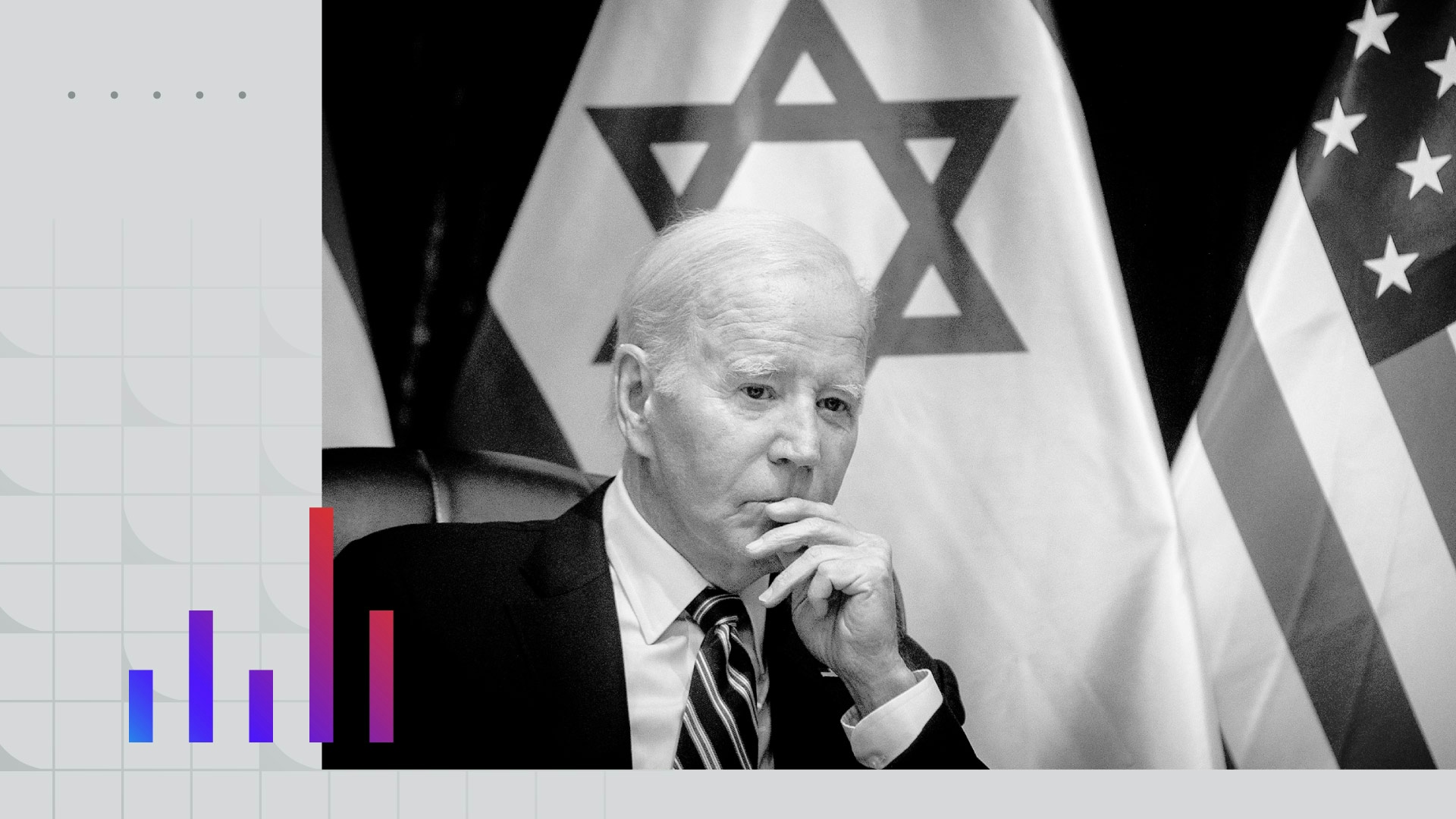Israel-Hamas War Is Causing Travel Disruptions Beyond the Middle East

Key Takeaways
20% of U.S. adults said they have delayed, rescheduled or canceled a travel booking as a direct result of the Israel-Hamas war.
Travel disruptions are impacting locations far beyond the Middle East. Of those who had changed trip plans, a plurality (41%) said that their trip was to take place within the United States.
The Middle East had previously seen a boost in tourism, but the Israel-Hamas war is likely to dampen traveler interest for months and even years to come.
Data Downloads
For a daily briefing on the most important data, charts and insights from Morning Consult, sign up for Our Best Intel.
The surprise attack on Israel by Hamas on Oct. 7 and the ensuing war have sent shock waves around the world. And while, geographically, the war has been contained thus far, it has stoked tensions globally.
It stands to reason that reports of the war’s disruptions to the travel industry have largely focused on travel in and out of the immediately impacted area: Airlines have curbed flight routes, and cruises are forgoing ports of call in the region, for example. But a recent Morning Consult survey suggests that the Israel-Hamas war is already having a broader impact on the sector.
Among U.S. adults, 1 in 5 said they have delayed, rescheduled or canceled a travel booking as a direct result of the war. But this doesn’t mean that travel disruptions are only impacting the Middle East. Of those who had changed trip plans, a plurality (41%) said that their trip was to take place within the United States, and the second-most impacted region was Western Europe.
U.S. Domestic Travel Has Been Disrupted by the Israel-Hamas War
Of course, that is partially reflective of the fact that Americans tend to travel within the United States and to Western Europe more than the Middle East or North Africa, so there are simply more trips on the table to disrupt. But this is also emblematic of the larger tensions — for example, concerns related to antisemitism and Islamophobia — stoked by the conflict, and peoples’ resultant apprehension to venture far from home.
Certainly, a worldwide travel alert issued by the U.S. State Department may be giving potential travelers pause about any trip (62% of adults said they had seen, read or heard something about the warning). Overall, the share of disrupted domestic trips suggests that the immediate impact of the conflict extends beyond the Middle East, and that travelers’ safety concerns are already influencing the industry on a global scale.
Specific demographics at scale: Surveying thousands of consumers around the world every day powers our ability to examine and analyze perceptions and habits of more specific demographics at scale, like those featured here.
Why it matters: Leaders need a better understanding of their audiences when making key decisions. Our comprehensive approach to understanding audience profiles complements the “who” of demographics and the “what” of behavioral data with critical insights and analysis on the “why.”
The war may also have a long-term impact on travel to the region in question. Unsurprisingly, concern about visiting the Middle East in general is high, with nearly half of U.S. adults saying they would feel “very unsafe” traveling to the region at the moment, and 18% saying they would feel “somewhat unsafe.” And those safety concerns extend to nearby regions as well. More than 1 in 5 U.S. adults said they would feel very unsafe going to a destination in North Africa, which aligns with news about the disruption of tourism in Egypt due to the neighboring conflict.
Awareness of Israel-Hamas War Leads to Higher Travel Safety Concerns
Notably, safety concerns about travel in those particular regions appear to be exacerbated by knowledge of the Israel-Hamas war and security concerns. When it comes to the Middle East and North Africa, those who had seen, read or heard about the war were more likely to say they would feel very unsafe visiting a destination in those regions.
While the Middle East had been enjoying a boost in tourism earlier this year, most recently bolstered by the World Cup in Qatar, the Israel-Hamas war has travelers thinking twice about the region as a whole and may dampen traveler interest for months and even years to come.
Lindsey Roeschke is an analyst whose work focuses on behavior and expectations of consumers in the travel & hospitality and food & beverage categories, particularly through a generational and cultural lens. Prior to joining Morning Consult, she served as a director of consumer and culture analysis at Gartner. In addition to her research and advisory background, Lindsey has more than a decade of experience in the advertising world. She has lived and worked in seven cities across four continents.
Related content

Voters Increasingly Favor Biden’s Handling of the Israeli-Palestinian Conflict

Americans’ Sympathies Shift Toward Israel Following Hamas Terrorist Attack
